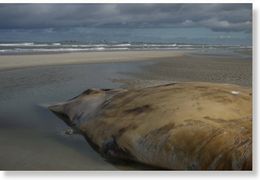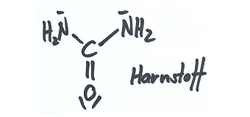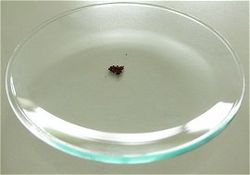Even in the sea: „Ashes to ashes …“
Questions01
Questions
What happens to the mortal remains of living things and in which areas of the world do they accumulate?
Chemical compounds of particular 'vitality'
When an organism dies, biological, chemical and physical processes act to degrade it into small, mainly carbon containing particles. These particles may form the foundation for new life. Alternatively, they are buried for an indefinite time in terrestrial or marine subsurface sediments, for example as coal, natural gas or oil.
What does 'organic' mean?
Until Friedrich Wöhler for the first time synthesised urea in 1828, people commonly believed that a particular ‘vis vitalis’, vital force, was inherent to carbon compounds derived from living organisms. It was assumed, this force prevented these compounds to be produced in a test tube. Almost all carbon compounds were therefore called organic, carbon itself being a notable exception as well as carbonic acid and its salts (including calcium carbonate, limescale) and carbon dioxide (CO2), the ‘anhydride’ resulting from dehydration.
Even though the underlying assumption of the term organic has since long been outdated, it is still commonly used in science. Several research groups at the Institute for Chemistry and Biology of the Marine Environment deal in particular with questions on the ‘where from’ and ‘where to’ of various classes of organic substances in the sea.

![[Translate to English:]](/f/5/_processed_/3/2/csm_ICBM-Logo-transparent-_91fe1c6774.png)


